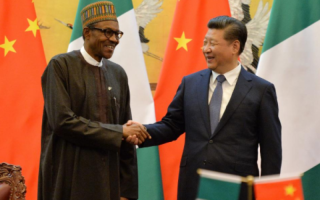China's $60 Billion For Africa to Global Prosperity
do you want to change the world?
Change yourself first: Soka Gakkai International (SGI)
New from FORBES.com
As a long-term investor and developer of infrastructure in West Africa, I have been tracking China’s courtship of African nations over the last decade. Traditionally, most Chinese foreign investment in Africa has been aggressively one sided and based more on politics than an objective business case. These investments often require local sovereign guarantees and strong local government support. This may be one of the reasons why, despite the strong business case for infrastructure development in Africa, these investments have yielded mixed results.
The basis of Chinese investment in Africa is now changing, perhaps in part due to slowing growth in China and the crack downs on corruption taking place in China and in many African countries, notably Nigeria. In fact, both traditional Western and Chinese investors have acknowledged over the last two years that new, business-focused, transparent investment strategies are urgently required for Africa. Both sets of foreign investors are now collaborating more with credible private local companies and institutions, rather than governments and/or politically exposed people and organisations.
However, China has been the first to back this new focus with significant specific investment commitments. In December 2015, President Xi Jinping ushered in a new era of “real win-win cooperation” between China and Africa. This strategy aims to create mutual prosperity, allowing investors to “do good while doing right.” China has backed this proposal up with a commitment of $60 billion of new investment in major capital projects, which are tied to developing local economic capacity. This level of commitment contrasts starkly with the action, or lack thereof from the West. Western banks and investment institutions tied to archaic and largely ineffective Africa investment models are in danger of missing out on the double digit returns that successful African investments provide. Overall there is strong and growing sentiment that the political upheavals and slow adoption of sustainable business models in Europe and America, present an opportunity for Asia and Africa to help each other to develop and thrive.

By 2050, 25% of the world’s nine billion population will Africans and most of them will be under 30. To unlock the prosperity that such a human capital boon can lead to a transition must be made from financing strategies based on aggressive extraction of short-term high returns and raw materials to those focused on sustainability. The commitments made by President Xi Jinping in 2015 follow this model – comprehensively targeting areas that should foster sustainable economic growth: industrialization, agriculture modernization, infrastructure, financial services, green development, trade and investment facilitation, poverty reduction and public welfare, public health, people-to-people exchanges, and peace and security.
Outmaneuvering the competition
This change in investment approach appears to be working already, with the balance of influence in Africa increasingly favoring China’s state-led capitalism. Quartz published in October last year data from Afrobarometer which showed 63% of the 56,000 people polled in 36 African countries responded that China’s influence in their countries was somewhat to very positive. Chinese investments in infrastructure, development and businesses where cited as primary factors contributing to a positive image of China as an enabler of business in Africa. China also ranked highly on the external influence barometer at 23%, just edging out the U.S. and falling a few percentage points behind former European colonial powers.
The exactness of these survey results is less important than what the numbers signify. Aubrey Hruby, co-author of the 2015 book The Next Africa: An Emerging Continent Becomes a Global Powerhouse, notes that the Chinese are known for ‘moving quickly’ in Africa, relative to the U.S. By September 2016, Chinese companies had invested more than $14 billion in Africa – data from fDi Intelligence also shows that Chinese capital investment into Africa increased by 515% up to July 2016 over full-year 2015 figures. As African nations and the burgeoning private sector companies within them pursue exponential yet sustainable growth, the agility of the Chinese will be even more attractive.
Compelling returns will be gained from sustainable business strategies, an estimated addition of $12 trillion to the global GDP by 2030, according to a report launched in Davos in January 2017, by the Business and Sustainable Development Commission. It will take more than Chinese and African investment to unlock this U.S. $12 trillion. I hope that the high-profile escalation and shift in strategy of Chinese investment in Africa will stimulate a quicker similar shift in the West. In fact, given the global demographic trends, the untapped potential in Africa, the need for more local empowerment and support for the real private sector it will require more than financing to reach this U.S. $12 trillion goal. Africa needs input from and partnership with a wide range of countries and investors. This will be capital, technology and time well spent as Africa is so clearly a continent that will yield hundreds of billions of dollars, if not trillions in returns for long-term sustainable investors.

Ultimately, what comes of China’s promises and the shifting global dynamics depends largely on what we do ourselves. As indigenes in African countries we have been the loci for these investments, we must ensure that real local content thrives – both during the building of and the operation of strategic infrastructure. Sustainability relies not only on goodwill from the East and the West, but also on us being able to add value, negotiate and focus on long-term goals in our various countries.

